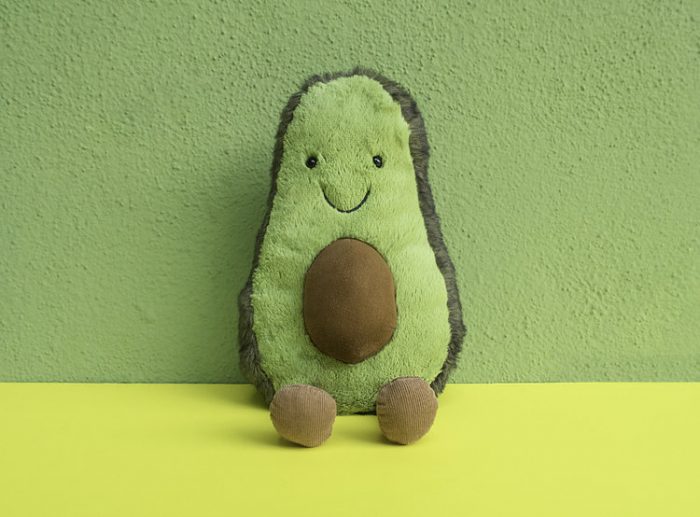The low FODMAP diet was developed, and has been proven, to help people with IBS. However, it can also be helpful for relieving symptoms of other conditions. One of these that I get asked about all the time is SIBO.
WHAT IS SIBO?
SIBO stands for Small Intestinal Bacterial Overgrowth. It happens when too many of your ‘good’ bacteria find their way up into your small intestine (they should be living in the large intestine) and decide to live and overgrow there.
What happens next is they feed off any sugars and carbs that you eat. This is what they should be doing, BUT they’re doing it in the wrong place. This is a problem, because the nutrients they’re feeding off would normally go straight into your body, so it doesn’t get all the nutrients it needs. The effect that you’ll probably notice is the gas, bloating, nausea, cramping that happens as a result of this ‘feeding.’
HOW DOES IT DIFFER FROM IBS?
Well, there’s a lot of overlap. The symptoms of SIBO and IBS are really similar (bloating, gas, change in bowel movements, pain) and you could have one, the other, or even both.
It’s been cited that 60% of people’s IBS symptoms may actually be traced back to SIBO. However, there is so much debate about this. Some think SIBO causes IBS, some think it’s the other way around. So, I wouldn’t totally trust that figure.
What I would say is that doctors should always try and test for and rule out SIBO before diagnosing IBS. If you have IBS but haven’t been tested for SIBO, I’d recommend speaking to your doctor. Not all doctors will be forthcoming about doing this for you, but they can order a breath test for you to rule out SIBO. Then you know what you’re dealing with!
WHAT IS THE LOW FODMAP DIET?
Now we’ve clarified exactly what SIBO is, let’s clarify what the low FODMAP diet is.
The low FODMAP Diet, created by Monash University in Australia, is scientifically proven to help with the symptoms of IBS (it’s also sometimes recommended for people with SIBO, Crohn’s disease, colitis, and other functional GI disorders.) Research shows that around 75% of people who try the diet see an improvement in their symptoms.
The goal of the diet is to help you understand your IBS triggers and therefore, control your symptoms. It’s not going to cure them unfortunately, but it is going to make them A LOT more bearable.
The ‘FODMAP’ part of the diet is an acronym that stands for:
-
Fermentable – the process where gut bacteria ferment undigested sugars & produce gas
-
Oligo-saccharides – Fructans & GOS – found in wheat, onions, garlic, pulses
-
Di-saccharides – Lactose – found in dairy products
-
Mono-saccharides – Fructose – found in honey, apples
-
And
-
Polyols – Sorbitol & Mannitol – found in some fruit & veg and artificial sweeteners
These are all sugars that aren’t properly absorbed by the gut, triggering symptoms. As you can see, they are found in a huge variety of foods (damn it!).
There are 3 distinct phases to the low FODMAP diet. The principle of the diet is to limit foods high in FODMAPs for an initial period of 2-6 weeks (phase 1 – ‘elimination’). You then focus on gradually reintroducing the foods in groups so you learn what your triggers are (phase 2 – ‘re-challenge’). The end result is a personalised low FODMAP diet for YOU, that fits around your specific tolerance and is sustainable long term (phase 3 – ‘personalisation’).. As a result, this should improve your personal gut symptoms for life!
Despite being called a ‘diet’ it’s not about losing weight or restricting your diet long term. It’s about learning YOUR unique tolerance levels. The aim is to reintroduce as many high FODMAP foods as your gut can handle, so you can eat as healthy and varied a diet as possible. I like to think of it as a ‘learning diet’ – learning about your gut so you can get to the perfect balance between reducing your symptoms and eating healthily. Wouldn’t that be lovely?!
WILL IT HELP IF YOU HAVE SIBO?
Even though it’s helpful to know whether you’ve got SIBO or IBS or both (because the treatment plans DO differ), there are some things which will help you, whichever bucket you fall into.
The 2 common approaches to treat SIBO are antibiotics or herbal microbials. The goal of either of these is to kill the overgrown bacteria in the small intestine. So, for that reason, this treatment differs from that of IBS.
However, these approaches are just a temporary fix, because they don’t address the root cause of how the bacteria got into the small intestine in the first place. So, after taking antibiotics or herbal antimicrobials for SIBO, it can be a good idea to use diet to starve out any of that bacteria left behind, AND to try and avoid them growing back and causing a relapse of SIBO
That’s where the low FODMAP diet can come in – in this ‘prevention’ phase of SIBO management. The low FODMAP diet is a type of ‘low residue’ diet (the Specific Carbohydrate Diet is another example). What it will do is cut out the sugars that the overgrown bacteria would feed on. This will starve them of their food and avoid them overgrowing again.
SHOULD YOU TRY IT?
If you’re in this position, where you’ve been diagnosed with SIBO and have taken antibiotics or herbal antimicrobials to kill the overgrown bacteria, you could try the low FODMAP diet.
However, this diet is very limiting, so, as always with the low FODMAP diet, it should only be done temporarily to relieve symptoms. You should also work with your doctor to find the root cause of your SIBO so that you can focus on that in the long term.
Try the elimination phase for 4 to 6 weeks, under the guidance of someone with experience. If your symptoms improve, you should then start the re-challenge phase to systematically identify which foods and FODMAPs are triggering your symptoms.
Have you been tested for SIBO? Let me know in the comments below.
Need help working through the low FODMAP diet? Get in touch!
Thank you so much for taking the time to read this and letting me be a part of your journey in taking control of your gut, eating well and living your life.












Read 0 comments and reply